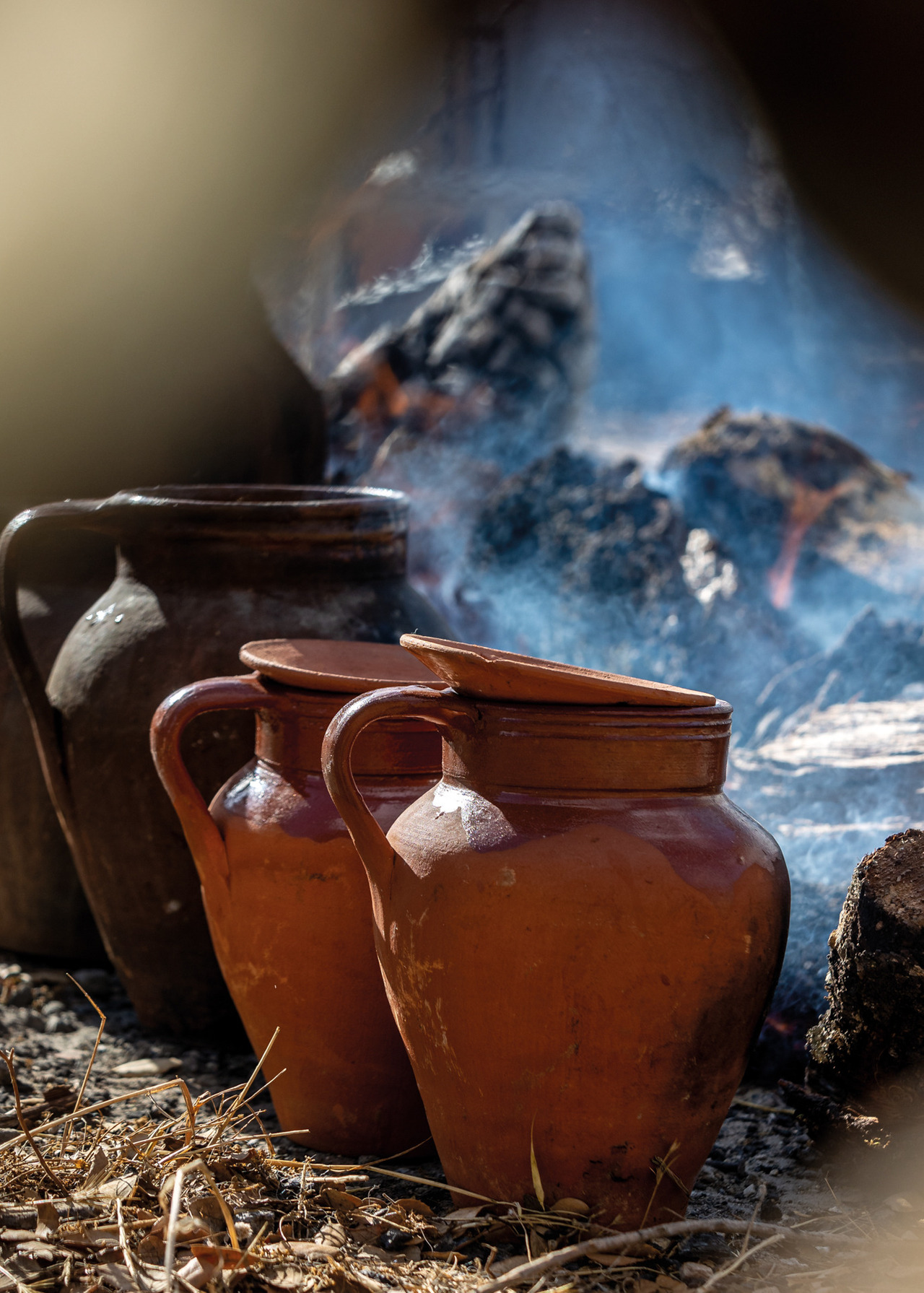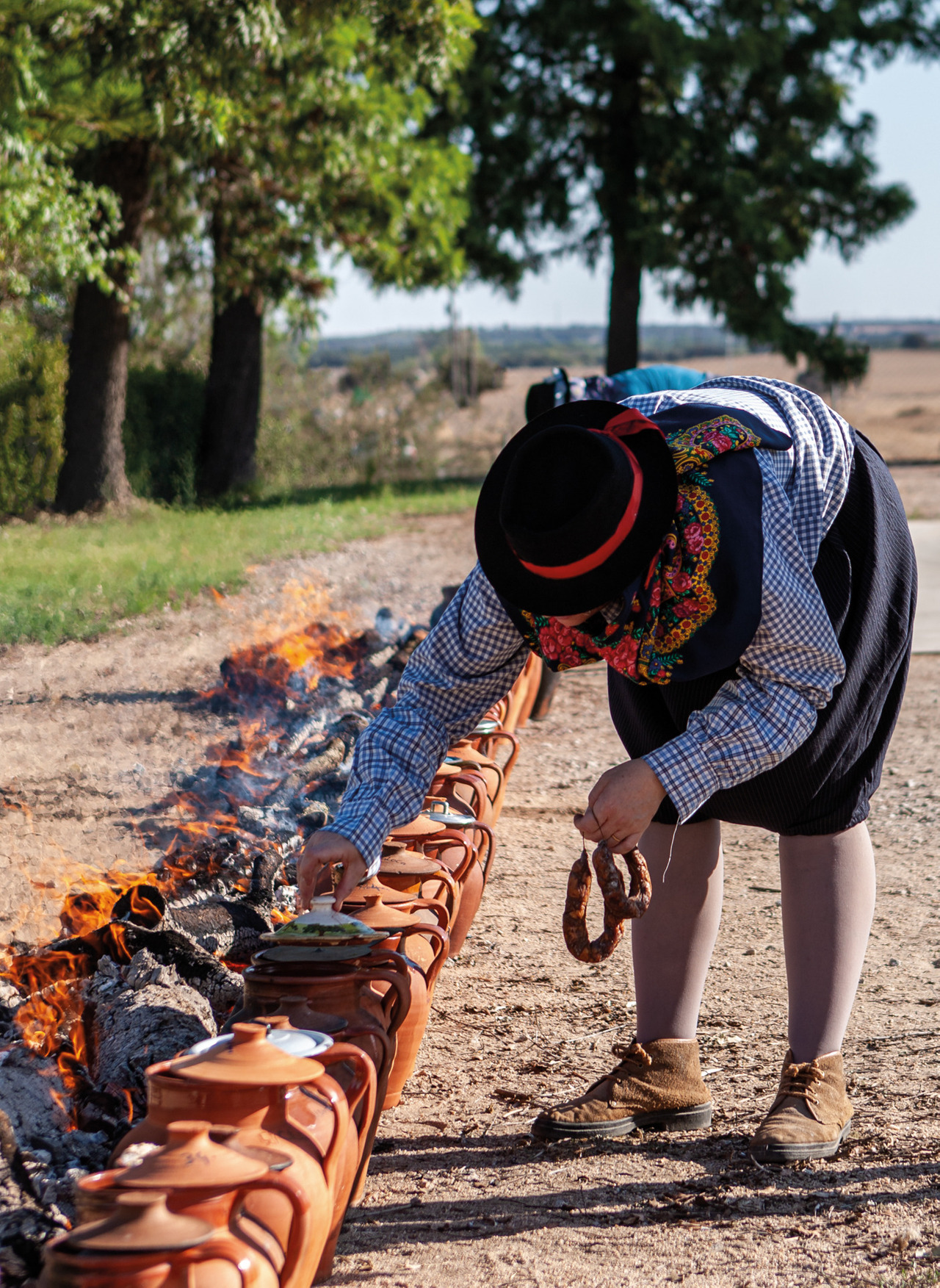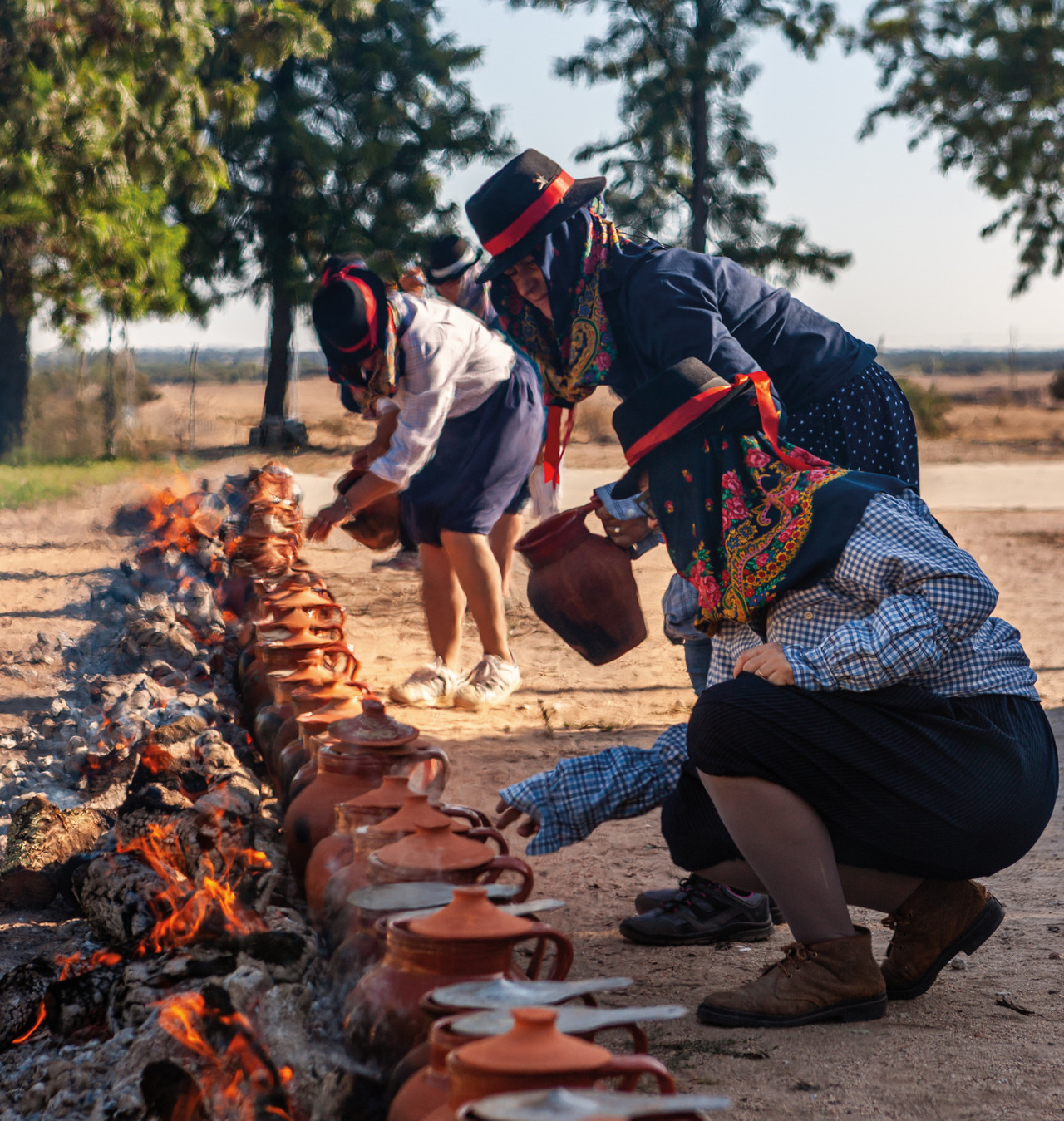“Não longe desta cena, à sombra de uma velha azinheira, a cocaria era uma correnteza de panelinhas de barro aconchegadas ao brasido ali atamancado com a lenha que havia à mão. Uma mulher, cuja tarefa era vigiar este cozinhado coletivo, ia dando, a cada panelinha e de vez em quando, a conveniente volta, operação que consistia em pegar-lhe pela asa e dar-lhe uma sacudidela rápida e certeira, fazendo com que o que estivesse por baixo passasse para cima e que o que estivesse por cima fizesse o invés. Estava ali, aferventando baixinho, quase pronto, à espera do meio-dia, a refeição dos homens. A meio daquele alinhamento, destacava-se uma panelinha maior. Era a dela e do marido ali ao lado, na debulha.
Not far from here, in the shade of an old holm oak tree, the cocaria was a row of clay pots nestled in the embers, kindled with whatever wood was on hand. A woman, whose task it was to oversee this communal cooking, would occasionally give each pot a convenient turn, an operation that involved taking it by the handle and giving it a quick, sharp shake, so that whatever was on the bottom would move to the top and whatever was on top would do the opposite. There it was, simmering softly, almost ready, waiting for midday, the men’s meal. Among the lineup, a larger pot stood out. It belonged to her and her husband, who was nearby, threshing.

(…) Deu-nos água fresca com o delicioso sabor a barro e satisfez-nos a curiosidade no respeitante aquela cozinha ali improvisada no chão.
- Nós chamamos-lhe cocaria. Já no tempo do meu avô era assim que se dizia. Cada um traz a sua panelinha e o avio que quer ou pode. A maioria traz um naco de toucinho e outro de chouriço e, às vezes um pedacito de carne da salgadeira. Junta-lhes uma cabeça de nabo, uma batatita e uma ou outra verdura com que fazem, chama-lhes a gente, umas sopas de carne. Migam-lhes pão à medida da vontade que têm e, depois, alguns deles estendem-se por aí, à sombra, e dormem a sesta até que o ganhão os acorde para acabarem a jorna até o Sol-pôr (…)”
(…) She gave us fresh water with a delicious earthen flavour and satisfied our curiosity about that improvised kitchen on the ground.
- We call it a cocaria. Back in my grandfather’s day, that’s what we used to say. Everyone brings their own little pot and whatever they want or can find. Most people bring a piece of bacon and another of chorizo, and sometimes a small piece of meat from the salting tub. They add a head of turnip, a potato, and some vegetables to make what we call meat soups. They add bread according to their appetite, and then some of them stretch out in the shade and nap until the foreman wakes them up to finish the day’s work by sunset. (…)”


PROF. A. M. GALOPIM DE CARVALHO

